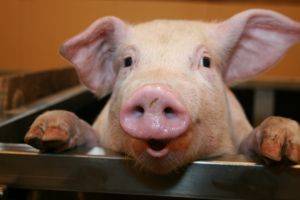In the Chelyabinsk region, the Rosselkhoznadzor Administration issued a warning to a citizen for hiding animals from the veterinary service
A specialist from the ROSSELKHOZNADZOR Administration conducted an on-site inspection and indeed revealed violations of the Law of the Russian Federation of 14.05.1993 No. 4979-1 "On Veterinary Medicine", the Order of the Ministry of Agriculture of the Russian Federation of 21.10.2020 No. 622 "On approval of veterinary rules for keeping cattle for the purposes of their reproduction, cultivation and sale" and the Order of the Ministry of Agriculture of the Russian Federation of 01.11.2022 No. 774 "On approval of veterinary rules for keeping sheep and goats for the purposes of their reproduction, cultivation and sale".
Thus, in particular, it was established that when placing livestock premises and animal pens, the owner does not take into account the distance from the wall or corner of the livestock premises to the border of the neighboring plot, as required by the rules for keeping large and small cattle.
The owner also lacks the conditions for storing and disinfecting the resulting manure.
In addition, part of the walking area is closely adjacent to the neighboring area, as a result of which the waste products of the animals end up on the neighbors’ territory.
In addition, the inspector established that not all farm animals owned by the citizen were provided to veterinary specialists for mandatory preventive and anti-epidemic measures.
According to the village farm book, Urazaev owns 13 horses and 32 sheep, but only one horse and 23 heads of small cattle have been provided for preventive treatment.
Based on the established violations, the Rosselkhoznadzor Administration issued a warning to the citizen regarding the inadmissibility of the established violations.
Information about the unaccounted number of farm animals was sent to the veterinary department of the Ministry of Agriculture of the Chelyabinsk Region for taking measures within its competence.
It should be noted that the Russian Ministry of Agriculture has developed a draft veterinary rules for keeping horses. The document has been submitted for discussion on the portal of draft regulatory legal acts. The new veterinary rules will apply to keeping horses in private subsidiary and farm households, in large and small enterprises of various forms of ownership, as well as in organizations. These rules will regulate the keeping of horses for the purposes of their reproduction, cultivation, sale and use. There are currently no rules for keeping these animals in the country.
The new rules establish requirements for the conditions of keeping horses, preventing their diseases and diagnostic tests. The rules include standards for watering and feeding horses, indicate area limits for their placement, set out the conditions for zoning enterprises and requirements for pasture maintenance. It is planned that the new veterinary rules will come into force on March 1, 2024 and will be valid until March 1, 2030.

